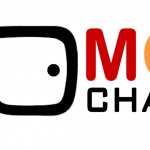Life in 2018 ishard, to say the least.
And it has been this way for a long time – at least ever since the Berlin Wall fell in 1990, the Cold War officially ceased, and the Internet Age began. Life before then (some of which I can personally recall; some of which has been related to me by others) was undeniably more simple. More black & white, more conspicuous, and easier to reckon with.
Life is Complicated
But by ‘easier’ I don’t necessarily mean that it wasfair.
Expecting life to be just the stuff of fantasy and fairy tale is a fool’s endeavor. As J.K Rowling, the acclaimed author of the Harry Potter publication series, stated in her 2008 Harvard commencement address:Life is difficult, and complicated, and beyond anyone’s total control…(The full text of this ground-breaking speech can be accessed through the Optimum Bundles internet service).
Previously, there were certain narratives that you fiercely clung to, like God, country, nation, science, culture and/or poverty. Now, everything is more confused, more kaleidoscopic, and certainly more difficult to define.
The very exercise of ‘defining’ something is now increasingly thought to be oppressive.
Take the example of the contemporary feminist and LGBTQ movements. The adherents only ascribe to these terms by way of academic identification. When questioned about the specifics of what they would like to be described as, they shun all notions of further inquiry. Instead, they retreat into the grey areas of culture, of un-decidability, of sociopolitical obscurity.
Life is built on a Framework of Concocted Lies
The endemic culture of ‘political correctness’, provides them shelter. And popular culture, with the Hollywood-centric media at its helm, further fans this trend towards nonconformity.
All we seem to be doing these days in our homes, workplaces, educational institutions, and supermarkets is walking on eggshells. We have become so afraid to state the truth, that we have turned into habitual liars.
Parents teach their children to speak falsehoods from an early age. By the time they reach their ages to vote and wield other forms of social influence, they make their decisions on the bases of these learned behaviors.
And so the cycle continues.
The Problem with Nonconformity
The problem with ‘not adhering’, is that you no longer accept the judgment meted out to you. Either for you, or against you.
A self-described nonconformist student argues with his/her teachers against a fairly allocated term paper grade. While a new-age artist revels in breaking with tradition. And a politician's campaign focuses on issues that impulsively scorn the set status-quo.
Because being a perpetual rebel against anything and everything in sight is ‘cool’, right?
For the adults around us, who have bills to pay and chores that need seeing to, perhaps not so much!
A Word on the Poor
Poverty has its own unique set of modes of behavior, contemplation and everyday living.
The class burdened with managing a roof over their heads, and two meals a day, are generally the same everywhere. A globally-spread nation of individuals, contending both against each other and those on the top for a shot at survival.
To be clear, the poor are notonlythe ones afflicted by a scarcity of funds and private property. There are also those who are poor of heart, of thinking, of soul thatneedto be addressed. They despite being in possession of every material commodity, remain mean of spirit. The ones who eschew charitable conduct and giving, and focus on further accumulation.
In my mind it isthesehordes that are the more dangerous variety – those responsible for much of the suffering experienced by other people.
The ones protected by the system they so zealously – no religiously – uphold.
Is Postmodernity to Blame?
As someone hailing from the humanities, I have been trained to think differently. I take these changes in terms of the postmodern cultural shift that gripped western nations in the 60s.
I have been taught to think of this multiplicity of narratives as something natural and spontaneous. To me, differing opinions lend credibility to a democratic setting.
But I think that this conclusion is too short-sighted. And a tad bit tooconvenient– at least for the ones in power.
As a contemporary nation, we are caught in the midst of a bigger agenda. A perfect storm of ideas fed by capitalistic corporations, and their paid backers.
How far will life proceed in its current aesthetics-oriented, and altogether soul-gutting, fashion? Only time will tell…though I don’t think that deliverance is very far. Just around the corner of where our despair gets the best of us (if I may put it a bit poetically).
If you liked this blog post, subscribe to an Optimum cable plan and watch blockbuster hits likeLost in Translation(2003) andSeven Years in Tibet(1997). These movies, among many others vent on the subjects of culture & society. You can easily stream through the service’s On Demand catalog.
[zombify_post]



